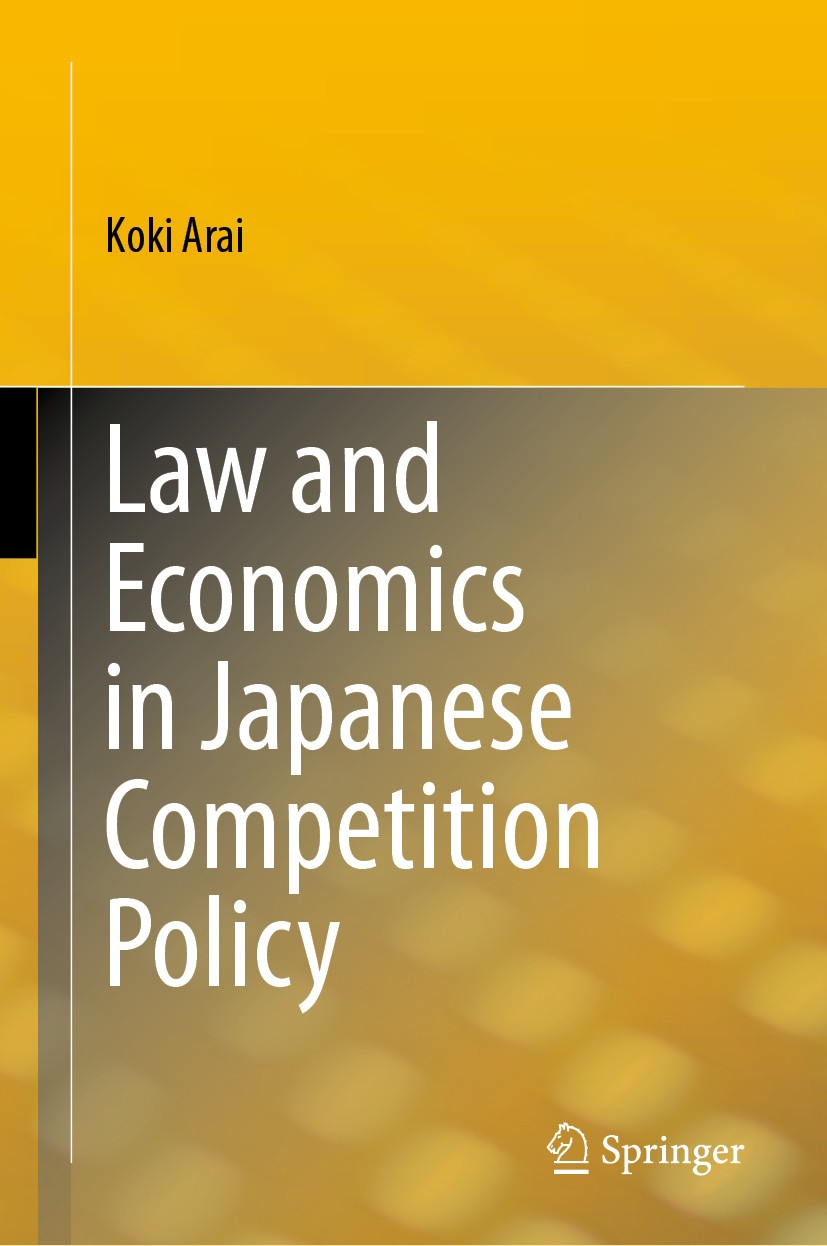| 书目名称 | Law and Economics in Japanese Competition Policy | | 编辑 | Koki Arai | | 视频video | http://file.papertrans.cn/583/582016/582016.mp4 | | 概述 | Studies Japan’s substantive competition policy by describing the mechanisms used to enforce it.Uses economic analysis to evaluate case studies on Japanese anti-monopoly law and its enforcement.Explain | | 图书封面 |  | | 描述 | .This book demonstrates how economics is used in cases of competition in Japan. Competition between firms is usually the most effective way of allocating economic resources and achieving consumer and producer welfare. At the same time, a balance must be struck; firms must not be over-regulated, but neither must they be completely free to create a monopoly or oligopoly. Therefore, the role of competition policy is to maintain a balance by using the collaborative economics of industrial organization. .The book uses economic analysis to evaluate case studies on Japanese anti-monopoly law, the Act Concerning Prohibition of Private Monopolization and Maintenance of Fair Trade (AMA), and enforcement in e.g. cartel cases, private monopolization cases, and merger cases. The Japan Fair Trade Commission implements a competition policy, primarily through the enforcement of the AMA, which promotes ingenuity and innovation in business by guaranteeing and enhancing fair and free competition, thereby ensuring economic vitality and consumer benefit. .This book is the first authoritative and compact work on competition policy in Japan, which has a more-than-70-year history and is based on solid leg | | 出版日期 | Book 2019 | | 关键词 | Antimonopoly Act; Competition Policy; Dango; Economic Analysis; Japan; Private Monopolization | | 版次 | 1 | | doi | https://doi.org/10.1007/978-981-13-8188-1 | | isbn_softcover | 978-981-13-8190-4 | | isbn_ebook | 978-981-13-8188-1 | | copyright | Springer Nature Singapore Pte Ltd. 2019 |
The information of publication is updating

|
|
 |Archiver|手机版|小黑屋|
派博传思国际
( 京公网安备110108008328)
GMT+8, 2026-2-8 14:09
|Archiver|手机版|小黑屋|
派博传思国际
( 京公网安备110108008328)
GMT+8, 2026-2-8 14:09


